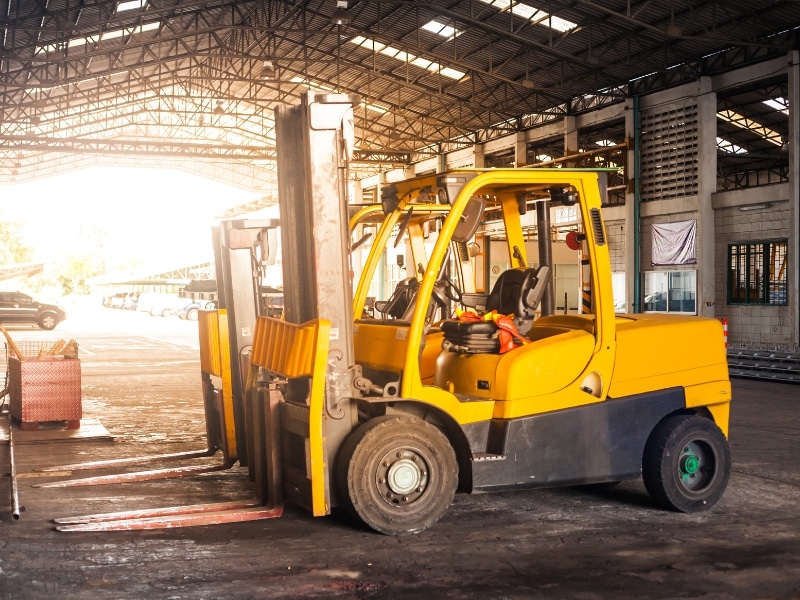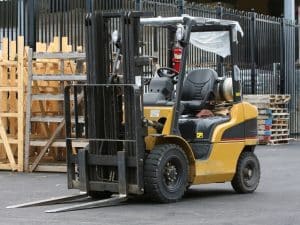Forklifts are essential equipment in many industries, from construction to warehousing, and they come in various types designed for specific tasks. However, not everyone knows if a forklift licence is necessary for operating all types of forklifts. In Australia, the rules around forklift operation are quite clear. Still, specific requirements depend on the type of forklift you use and your job. This article will explore the need for a forklift licence, the types of forklifts that require one, and the benefits of becoming a certified operator.
What is a forklift licence?
A forklift licence is a certification that allows an individual to operate a forklift legally in a workplace. It demonstrates that you have completed the necessary training to safely operate the equipment and understand workplace safety procedures.
- What does it cover?
- Safe operation of different types of forklifts
- Knowledge of workplace safety protocols
- Understanding the limits and capabilities of forklifts
- Correct handling of materials and loads
- Why is it required?
- To reduce workplace accidents
- To ensure compliance with Australian safety regulations
- To increase workplace productivity by having properly trained operators
- To protect employees and employers from legal liabilities
A forklift licence is not just about learning how to drive; it’s about driving safely and efficiently while following legal guidelines.
Why do forklift licences matter?
A forklift licence isn’t just a formality – it’s a vital part of workplace safety, as forklifts are powerful machines. When operated incorrectly, they can cause significant injuries or even fatalities. Here’s why a forklift licence matters:
- Workplace safety: A licence ensures operators know how to handle a forklift, load it properly, and navigate around hazards.
- Legal compliance: In Australia, it’s a legal requirement to have a forklift licence to operate for work purposes. Operating without one can result in fines or other legal consequences.
- Insurance and liability: Employers must ensure their workers are trained and licenced to reduce liability and insurance risks.
- Health and safety: A licenced forklift operator is less likely to cause workplace accidents, contributing to a safer working environment for everyone.
- Employer responsibility: Employers have a duty of care to ensure their workers are properly trained in operating machinery like forklifts.
Requiring forklift licences significantly reduces the risk of accidents and injuries on job sites. It helps workers avoid common causes of forklift accidents and protects them and the businesses they work for.
What types of forklifts require a licence?
While not all forklifts are treated the same, most require a licence. Here are some common types of forklifts that require you to hold a forklift licence:
- Counterbalance forklift: This is the most common type, where the operator sits on the vehicle. It requires a forklift licence to operate.
- Reach forklift: This type of forklift, used for narrow aisle warehouses, requires a licence due to its unique design and handling.
- Order picker: This is used in order-picking environments and requires the operator to be licensed for safety reasons.
- Rough terrain forklift: These forklifts are designed for use on uneven ground and require a specific licence.
- Telehandler: This type of forklift has a telescopic boom and is often used in construction. It requires a forklift licence.
You need a forklift licence for most forklifts, especially those used in commercial, industrial, or construction settings. The safety considerations and handling complexity of these forklifts require operators to undergo proper training and obtain a licence.
Can you operate a forklift without a licence?
Operating a forklift without a licence can lead to serious consequences. The table below summarises the key risks involved.
| Issue | Description | Consequences |
| Legal consequences | Violation of safety laws | Fines and legal penalties |
| Risk of accidents | Lack of training | Higher injury risk |
| Employer responsibility | Unlicensed operators allowed to work | Employer fines and penalties |
| Insurance issues | Claims may be denied | No coverage in case of an accident |
| Safety concerns | Not following safety protocols | Increased danger to others |
It is illegal to operate a forklift without the proper licence. The risks associated with unlicensed operation far outweigh any perceived convenience.
Who needs a forklift licence?
Anyone looking to operate a forklift in a work environment in Australia needs a licence. This includes a wide range of individuals, such as:
- Construction workers: Workers in construction sites may need to operate forklifts to move heavy materials.
- Forklift operators: For safety and legal reasons, individuals whose main job is to operate forklifts should possess a valid forklift licence, as forklift safety is essential for operators.
- Warehouse employees: Warehouses commonly use forklifts to store and transport goods.
- Logistics personnel: Those involved in logistics and transportation of goods also require a forklift licence to ensure they can safely move items.
- Farm workers: Agricultural workers who use forklifts to move large items, such as hay bales, also need a licence.
Anyone who operates a forklift in a professional setting, including construction, warehousing, logistics, and agriculture workers, must have a forklift licence.
How to obtain a forklift licence?
Getting a forklift licence in Australia involves several steps to ensure you have the necessary skills and knowledge to operate a forklift safely.
- Complete training: Enrol in a nationally recognised expert forklift training course provider with a registered training organisation (RTO).
- Theory and practical assessments: To demonstrate your ability to operate a forklift, you will need to complete both a theoretical test and a practical assessment.
- Age requirement: You must be 18 to apply for a forklift licence.
- Health and fitness: Some health checks may be required to ensure you can operate a forklift.
- Submit application: Once you’ve completed the training and assessments, submit your application to the relevant authority for your licence.
Obtaining a forklift licence requires completing a training course, passing assessments, and meeting age and health requirements. The process ensures that only qualified individuals operate forklifts.
What are the benefits of getting a forklift licence?
There are numerous advantages to obtaining a forklift licence, both for the individual and the employer. Here are just a few benefits:
- Career opportunities: A forklift licence opens up more job opportunities in the construction, warehousing, and logistics industries.
- Increased safety: A licenced operator is trained to handle forklifts safely, reducing the risk of accidents.
- Higher pay: Many employers offer higher wages for employees with a forklift licence due to the skills and responsibilities involved.
- Legal compliance: With a forklift licence, you ensure compliance with workplace safety regulations and avoid potential fines or penalties.
- Employer benefits: Employers benefit from having a workforce of licenced forklift operators who reduce risks and ensure workplace safety.
A forklift licence increases your job prospects and helps maintain a safer working environment, ensuring compliance with legal safety requirements.
Conclusion
Forklifts are vital to many industries, but operating them without a licence can lead to serious consequences. A forklift licence ensures you have the necessary skills and knowledge to operate these machines safely and legally. Whether working in construction, logistics, or warehousing, obtaining your forklift licence is an investment in your career and workplace safety. Looking to get your forklift licence? Get in touch with SafeZone Training to learn more.



